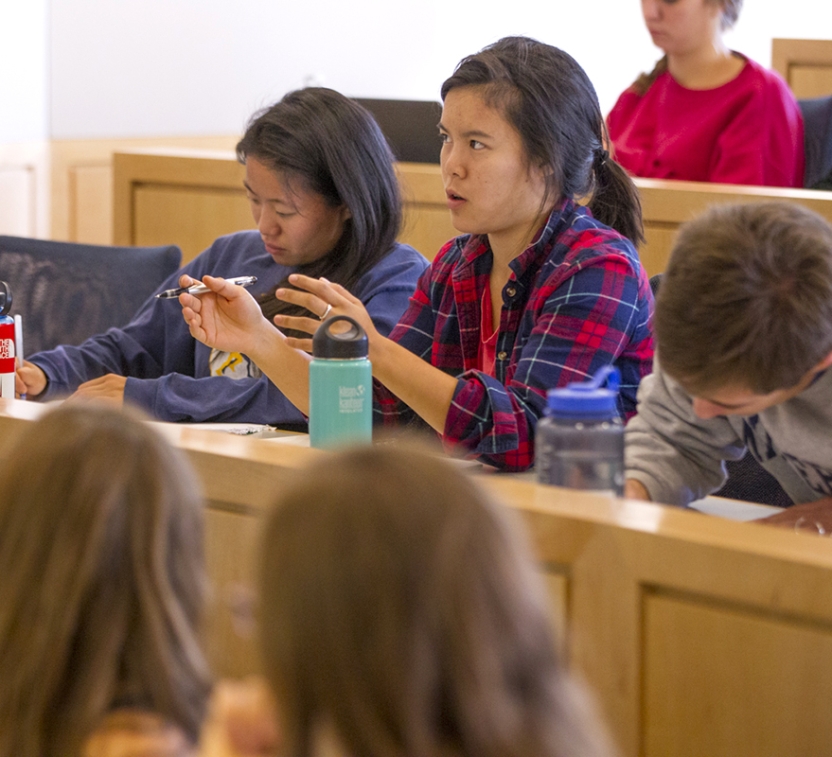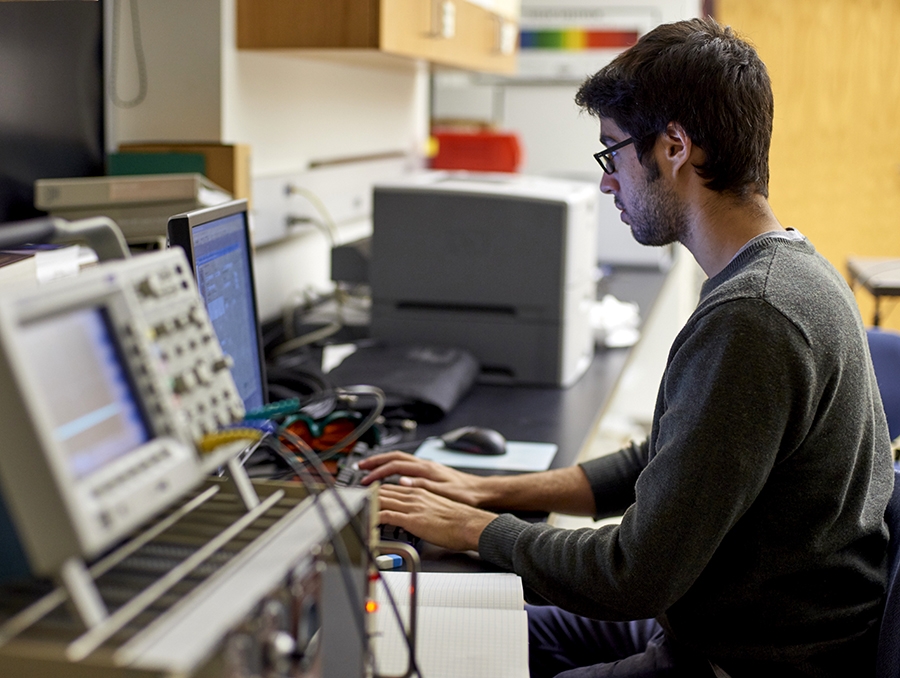New Double Major in Teacher Licensure Aims to Address Inequalities in Society

MIDDLEBURY, Vt. – Middlebury College has announced a new double major program that combines any approved major field of study with the coursework required for teacher licensure in the state of Vermont.
Introduced this fall, the double major in teacher licensure can be fulfilled for teaching at the elementary or secondary level. Either way, future teachers must meet the four, state-mandated elements for licensure: relevant coursework, a fulltime student teaching experience, presentation of the required Vermont licensure portfolio, and passage of the Praxis national examination.
Middlebury undergraduates seeking elementary-level licensure must also take courses in literacy, art, child development, and methods for elementary science, elementary math, and elementary social studies. The candidates for secondary-level licensure must also take two methods courses for grades 7-12 and a psychology class in adolescence.
All future teachers coming out of Middlebury College are also required to take three foundational courses – Education in the USA, Culturally Responsive Pedagogy, and Models of Inclusive Education – along with one semester of Educational Psychology. Students are also required to complete a Professional Semester that consists of a fulltime student-teaching experience with a master teacher in a local school.
The foundation courses are a direct reflection of the Program in Education Studies mission statement, said Jonathan Miller-Lane, associate professor of education studies and director of the program. The opening sentence of the mission statement reads: “The study of education necessitates an understanding of the reasons for the deep inequities that characterize education in the USA and other countries of the world.”
Said Miller-Lane, “The inequalities that exist in school systems in the U.S. today are a reflection of the inequalities that exist across this country. We in Education Studies are committed to preparing teachers who understand the extent of those inequities in society and are prepared to do something about them.
The program’s mission statement continues: “Through the investigation of educational theory, policy, research and practice from a variety of disciplinary perspectives students learn to think critically and creatively about the processes of teaching and learning and about the place of education in society.”
The three foundation courses “provide students with a deep understanding of the inequalities caused by race, poverty, immigration, language, and other factors,” Miller-Lane continued. “No group gets off from sustaining inequalities, and we needed a foundation of coursework that will give our students a deep understanding of this. In addition, we want our students’ field experiences to be school-centered, and not college-centered. That’s why our students in methods classes spend the majority of their time in the schools, and not here on campus.”

The faculty in Education Studies first conceived of the double major in teacher licensure in 2015, and, after the proposal was affirmed by the educational affairs committee of the faculty, the full faculty granted its approval on a voice vote last spring. The vote marked the first time that Education Studies was recognized as a major, albeit part of a double major.
Said Miller-Lane, “It was a marvelous affirmation from the faculty to receive that vote in favor of the double major. It was no small thing, and we in Education Studies will never take it for granted.”
The timing of the double major was fortuitous for another reason, the associate professor said. The Addison Central School District (ACSD), comprising the K-12 schools that serve Middlebury and six other communities, has a new educational partnership with Middlebury College that is linked to the district’s three-year process of becoming an International Baccalaureate World School district. (See related news story about the partnership.)
“The ACSD’s International Baccalaureate program will help us achieve our learning goals for equity and social justice,” explained Miller-Lane, “because the district is saying that every child in this region of Vermont will have access to the same curriculum adhered to by schools in international cities around the world. That, to me, is a serious commitment to equality.”
In addition to their education courses, students seeking the double major in teacher licensure for elementary schools must also fulfill the requirements for a second area of concentration offered at Middlebury. In comparison, students seeking the double major in teacher licensure for secondary schools must fulfill the Education Studies requirements in addition to the coursework needed to major in one of the following approved subject areas: art, computer science, English, mathematics, science, social science, or any modern or classical language including French, German, Russian, Spanish, and Latin or Greek.
- Reported by Robert Keren

